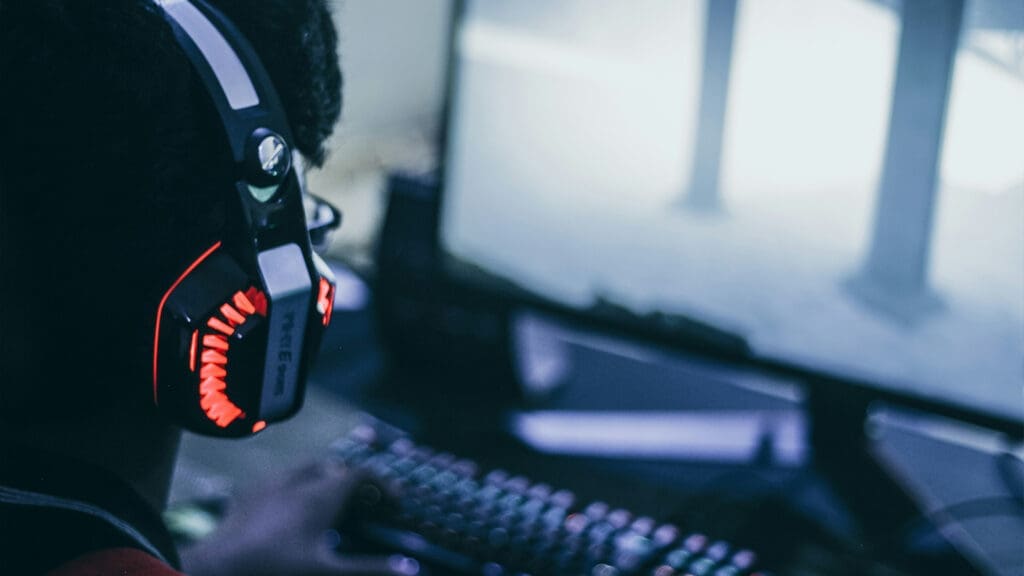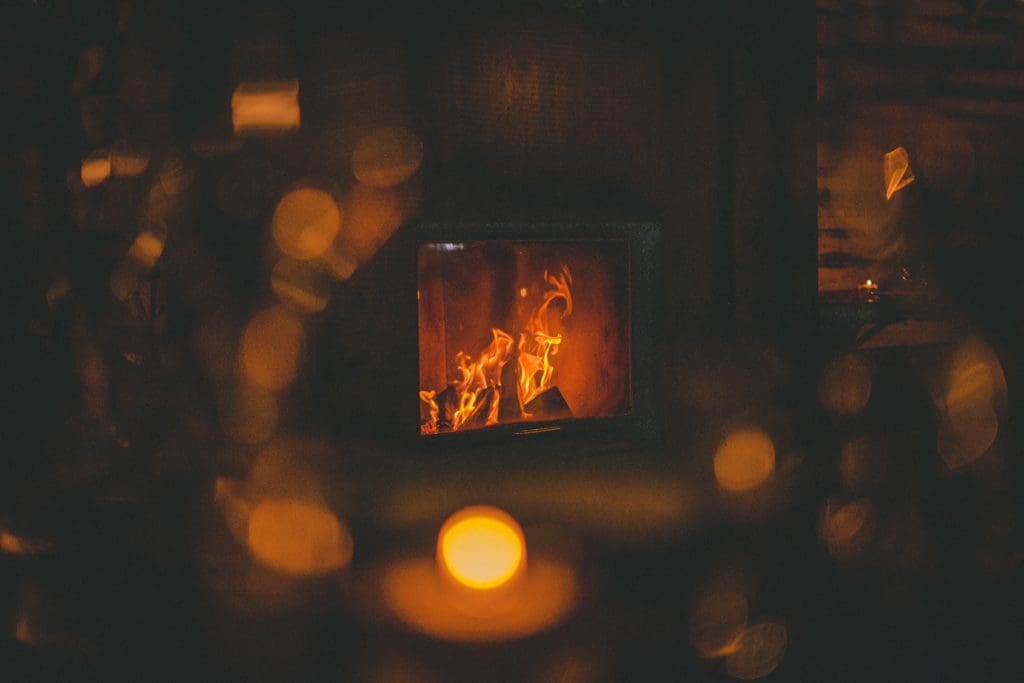W
What does infatuation feel like?
Perhaps this is a silly question. What could compare to the experience itself? And yet, if you teach works of art, like I do, it’s a question that comes up often. Every love story, every song about heartbreak—aren’t they, in their ways of provoking sadness or nostalgia, asking us to see correspondences between the work of art and our most intense emotional experiences? The way I felt when I glimpsed my friend’s older sister through a slat in the blinds is the way this song is now making me feel. Star-crossed characters pronounce impossible poetry to one another, and suddenly I am transported back to the sensation like electricity when my future wife reached under the table and took my hand for the first time. How miraculous. The rhythms of a song are nothing at all alike in quality or kind to what the fourteen-year-old-girl was to thirteen-year-old me, and a line of poetry is not the same as a lover’s touch.
In provoking these correspondences, the artwork makes a brazen statement: The singular, irreducible uniqueness of a personal experience can be embodied by something very public. Anyone can listen to that same song or read the exact same story. So what is it about that same story that reminds you of your life, and someone with very different experiences of their own? Whatever it is—and I don’t think there is just one answer—it spurs you to see connections where connections would not otherwise be. In a sense, then, the work of art has provoked its own form of infatuation. It gets you to see a correspondence between itself and yourself, in the way that love does. For when we are besotted with the possibility of another person, every little thing, every random public thing that passes before our eyes, suddenly reminds us of that person.
Nothing demonstrates this quite so clearly as the experience of a first crush: “Her image accompanied me even in places the most hostile to romance. On Saturday evenings when my aunt went marketing: I imagined that I bore my chalice through a throng of foes. Her name sprang to my lips at moments in strange prayers and praises which I myself did not understand.”
This is from James Joyce’s “Araby,” a short story from the 1914 collection Dubliners, which presents a perfect little portrait of what infatuation first feels like. Underwhelmed with mundane life, boy notices girl. Fed up with mundane life, boy seeks out girl. Soon, she’s everywhere. It’s not just that he’s looking for her in every place he can—he is—it’s that even though she’s not there, he still sees there the consequences of her existence. All of life, especially the dull bits, fills with possibility and meaning. Errands become trials; favours feel like quests. To be infatuated is to see the potential for your life to be joyfully upended, in any mundane corner of your day. “Her name was like a summons to all my foolish blood,” says Joyce’s besotted narrator. This is what infatuation feels like: not any single comparison, but the urge to make comparisons, where anyone else—or where even you yourself, at any other time—would see only dissimilarity.
I’ve taught “Araby” in introductory literature classes for more than a decade. And while the story’s dense language and now obscure cultural references have made it challenging, students always connect with it. They see something of themselves in this protagonist in love for the first time with the girl next door. This past semester, though, something different happened, right as we got to this passage:
One of my students spoke up and said something I never could have expected: Following a girl around town? “Spying” on a girl from your window? This is “stalker” behaviour. In my student’s words, “Things suddenly got creepy.”
I was gobsmacked. I couldn’t help thinking of how many times in my own life I’d done exactly this—timed my walk across the schoolyard to correspond with a girl’s, timidly peaked out my window for the off chance I’d catch a glimpse. Stalker behaviour?
“Why?” I asked.
“Because no one would ever do that,” the student said. “We’d just look the person up online.”
I began teaching in 2006. Since then I’ve seen students change a lot—as has every other teacher I know, whether they work in secondary or post-secondary education. Twenty-odd years ago, my students were a lot like I had been in college. They would print syllabi, write things down during lectures, and read from textbooks. Twenty years ago, the biggest difference between us was email. Urgent, pleading missives would arrive in my inbox on Sundays, Friday nights, two-in-the-morning requests for meetings about assignments due 8:00 a.m. that same day. Often these were written like glorified text messages—“i” instead of “I,” “u” instead of “you.” Sometimes I couldn’t even guess who’d written, because the student had not signed their name and had written from personal accounts named superpooperlol or bloodykissezz36. Whereas, when I was a student, if I wanted to get in touch with one of my professors, I had to wait for them after class or outside their office, on the off chance they’d be there when they said they would (much like a stalker might today, I guess).
Five or so years later, I started getting students who had grown up with the internet, though not with social media and smartphones. These kids still expected to read from books, but not to refer to a printed syllabus or record information with a pen and paper. I still remember my shock when a student first snapped a photo of my whiteboard, after spending the previous seventy-five minutes of the lecture writing down absolutely nothing I had spent hours carefully preparing to say.
There have always been middle-aged grumps complaining about young people, and there have always been middle-aged skeptics reminding us that middle-aged grumps like to complain about young people.
In the 2020s, that kind of behaviour is no longer surprising. I now have students who grew up with smartphones and social media. They’ve travelled from Facebook to Instagram and TikTok and back. They know how to write proper emails, but they’d rather text me. They certainly have no plans to print up a syllabus or ever take notes, and they don’t see why they ever would. Everything, they assume, is online already—or at least is supposed to be—and online is everywhere at all times.
Most of these students spent two Covid years on Zoom, and as detrimental as those years seem to have been, many would rather stick with remote education. The student who called Joyce’s protagonist a stalker was taking my online course and, as with the majority of the kids in that class, I never saw what she looked like. Despite my pleas and threats, most of the students refused to turn on their videos the entire semester. There is something otherworldly—creepy really—about discussing the kinds of intense emotional experiences in these stories with people whose faces you never see, especially when one of them sees something so different from what you’ve always noticed.
“This is what Covid did to an entire generation,” a high school teacher with two decades of experience at Los Angeles Unified School District told me. Students can’t handle in-person communication anymore. “Dating apps and social media have ruined young people,” an old colleague said. I heard a lot of these kinds of explanations from friends and co-workers. Of course, they are not alone in thinking this way. Column after newspaper column, book after best-selling book are painting a portrait of a generation whose meagre experience with social interaction and over-reliance on screens lead them to police the risks of physical interaction and construct their identities primarily online. Could this really be what kids in their twenties are like? They’re not that much younger than I am—a mere couple of decades. Is that enough to so drastically alter something as fundamental, as seemingly universal and perennial, as infatuation?
One of the things I’ve always loved about my profession is that it allows me to participate in the lives of younger generations. My students have always fed me with new ideas and kept me abreast of where the world was headed. Even if I did not always share their tastes, I appreciated their habits and wanted to learn more about their lives. But something has changed lately. And my student’s comment about “Araby” made that change clear to me. I see so little of the world I myself learned from in the world these kids now inhabit, and frankly, I don’t care. For the first time, I’m not interested in my students’ version of the way things are. They can go ahead and do what they like and just leave me out of it. I have no qualms about the world passing me by. That really scares me.
I don’t actually think most young people would agree that Joyce’s portrait of infatuation is creepy. One person’s opinion is never paradigmatic of a generational shift, even when—especially when—that opinion seems to fit the dominant narrative. There have always been middle-aged grumps complaining about young people, and there have always been middle-aged skeptics reminding us that middle-aged grumps like to complain about young people. Perhaps all this worry over what screens have done is overblown. Perhaps it’s barely limning the outlines of a much bigger problem than we realize. I don’t know. What I do know is that when I was younger, I swore I’d never turn into one of those codgers grumbling that no one does things like they used to. I’m only in my mid-forties, and already that’s exactly what I’ve become.
How often have I said—how often have I heard so many other people born before the nineties say—that they are grateful they did not grow up in this world. They’re grateful they had crappy daytime TV and answering machines and record stores and little slips of paper they wrote girls’ numbers on. This kind of gratitude is the opposite of everything I want to feel. It is the opposite of affection. It is a pride, and like most all forms of pride, it vaunts its dignity at the expense of another’s. Such pride emerges when you believe, not only that you’ve never been, but that you could never be, ever, like them.
Could it be, then, that the things we dislike most about younger generations are the very things we see happening to us?
I used to relish the opportunity to participate in my students’ worldviews and was excited to discover correspondences between those worlds and mine. In a sense, I was like a schoolboy with a crush. I sought out my students on their terms, allowing their differences to brighten up the dull points of my days. Now, it’s almost like I’ve become their stalker. All we middle-aged grumps are. For what is stalking if not the antithesis of the schoolkid crush? Stalkers aren’t sincerely interested in the people they’re following around, because they’re not capable of opening themselves up to the similarities between those people and themselves. Sure, stalker and schoolkid alike are both obsessed. But whereas the latter are obsessed with seeing who the other person might be, what that person might mean to their own lives going forward, the former aren’t open to such uncertainty. They’ve pinned down who they are and who they’ll ever be; they’re sure of it, which is why they’re already sure of who these other people are or ever will be as well, these people they want nothing to do with but cannot stop obsessing over.
Generational critique focuses so much on the differences between one group’s youth and another’s that it is often blind to the ways experiences overlap across lifetimes. Partly, this is to do with the still predominant assumption that the period of life that exerts the greatest influence over a person, that shapes a person almost permanently, is their childhood. We are the people our youths turned us into, and any attempt to break that mold, all those hours of therapy and self-help and “growth,” amounts to little more than awkward deviations from a basic shape that will continue to hold.
For this reason, we middle-aged by-products of eighties and nineties childhoods could never be like today’s kids; their world is so different from what ours was. This is the underlying logic of the critique, and it’s based on the assumption that most people have finished with the majority of their developing by the time they’ve departed their early twenties. This is nonsense, and we are the living proof of that. We middle-aged grumps have just as much trouble concentrating, don’t read, stare at screens, and gossip online; we are just as apt as any college student to cut corners with AI. Ah but that’s different, right? Our problems have more to do with career pressures and family responsibilities. Plus, really, you can’t pretend that we’re just as impressionable as our children. We’re the adults; we’ve long since finished becoming ourselves. Could it be, then, that the things we dislike most about younger generations are the very things we see happening to us? You cannot be infatuated with another when you see in them what you dislike about yourself.
I do believe that experiences often leave deeper and longer-lasting impressions on the young than on the well trod. So it is important to monitor what is happening in our schools and homes. But it’s not more important than what is happening to us. My student doesn’t understand Joyce the way I think she should? She can’t read back into history and imagine a world lived offline? Is that so different from my own inability to imagine that student’s current online world? When was the last time any of these kids saw the adults put down the phone and pick up a book? As any decent teacher and halfway conscientious parent eventually learns, instruction exerts but a paltry influence in comparison to example.
I wrote this essay to give myself a wake-up call. Whether I’ll actually get up, who knows. What I do know is that I don’t like being uninterested in others. I want to be able to see what my students see, and stay considerate when what they see seems alien to me. Otherwise, I’ve become the person I never thought I’d be. Back when I was a young man and I was done doing a good portion of my growing up, I took it for granted that the curiosity and sympathy and openness of that time would stick around forever. They don’t though, not if you take it for granted that you no longer need to work to keep them there.






